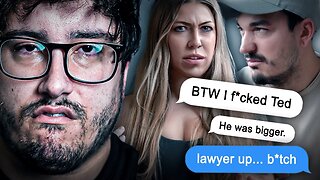Premium Only Content

Pages of Power: Transforming Tomorrow Through Reading Today
1. Technological Distractions: The pervasive use of smartphones, tablets, and other electronic devices has led to children spending more time on screens, diverting their attention away from traditional reading activities.
2. Lack of Role Models: Children often mimic the behavior of adults around them. If parents or caregivers are not avid readers, children may not see the importance of reading and may not develop a reading habit.
3. Busy Lifestyles: Over-scheduled routines with numerous extracurricular activities and homework leave children with limited leisure time. Reading may be perceived as a low priority in comparison to other activities.
4. Instant Gratification Culture: In an era of quick information access and instant gratification, some children may find the slower-paced process of reading books less appealing than more immediate forms of entertainment.
5. Educational System Pressure: An education system focused heavily on standardized testing and academic achievement might prioritize rote learning over fostering a love for reading, leading children to associate reading with a chore rather than enjoyment.
6. Limited Access to Books: Economic factors or living in areas with limited access to libraries and bookstores can hinder children's exposure to a variety of reading materials.
7. Preference for Visual Media: The rise of visually stimulating media, such as video games and streaming services, may attract children more than the immersive world of books, contributing to a decline in reading interest.
8. Peer Influence: In some cases, children may be influenced by peers who do not value or engage in reading, leading to a social stigma around being a reader.
9. Ineffective Reading Programs: If reading programs at schools are not engaging or fail to capture the interests of children, they may not develop a positive attitude towards reading.
10. Unawareness of Future Losses: Children may not realize the long-term consequences of not cultivating strong reading skills. Poor reading habits can impact academic success, critical thinking abilities, and overall cognitive development, potentially limiting future career opportunities and personal growth.
The losses children may not see in the future include missed chances for intellectual stimulation, reduced vocabulary and communication skills, diminished creativity, and a potential disadvantage in academic and professional pursuits that rely on strong reading abilities.
-
 DVR
DVR
Bannons War Room
13 days agoWarRoom Live
3.4M624 -
 LIVE
LIVE
The Big Mig™
13 hours agoPresident Trump, In Crypto We Trust
2,342 watching -
 LIVE
LIVE
Caleb Hammer
1 hour agoGold Digger Keeps Destroying This Mans Life | Financial Audit
287 watching -
 2:06:52
2:06:52
Matt Kohrs
14 hours agoMarket Open: Relief Rally Incoming?! || The MK Show
42.7K1 -
 46:59
46:59
BonginoReport
5 hours agoEpstein’s Pals Party at the Oscars—Still No Files (Ep.151) - 03/03/2025
112K250 -
 2:59:44
2:59:44
Wendy Bell Radio
8 hours agoThey Don't Have The Cards
81.1K57 -
 1:28:34
1:28:34
Dear America
13 hours agoTrump Sends Yuge AMERICA FIRST Message To The World! + Oscars Stays Woke!
59.9K38 -
 55:36
55:36
Randi Hipper
2 hours agoTrump’s Crypto Takeover: Reserve Reveal Stuns All!
14.8K -
 58:30
58:30
Kyle Fortch
3 hours ago $0.18 earnedCadillac Dale: #1 Song With Jack Harlow, Rihanna Sampling His 90s Hit,
12.1K3 -
 LIVE
LIVE
SternAmerican
23 hours agoIntegrity in Action call With Steve Stern and Raj Doraisamy Monday, March 3rd at 10:00AM EST
271 watching